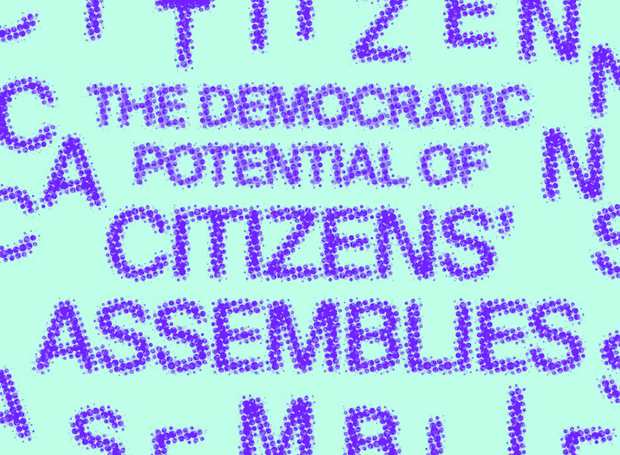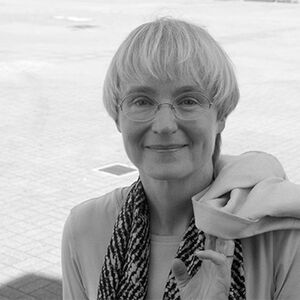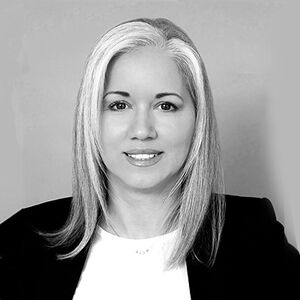Thomas Mann House Events Archive
June 2022
“Against Reductionism: Some Considerations on Scaling”
Stanford University

Information
There seems to be an unbridgeable gap between the large and the small. Although there usually is a scale by means of which large and small phenomena can be compared by measuring, considerable difficulties arise as soon as large things have to be reduced or small things enlarged. lt is only in this transition that it becomes apparent that different laws prevail on a large and small scale and that something that seemed self-evident on a certain interval of a scale suddenly no longer applies. Thus, rescaling is above all an epistemological problem: it is difficult to predict or estimate when qualitative changes will occur, or where theories will lose their explanatory power, or where applications will no longer be functional.
With the help of some examples, Claus Pias will derive three heuristic dichotomies (reductionism/holism, quantity /quality, unity/disunity) that might be useful for a comparative history of scaling problems in different sciences. Furthermore, he shows that an awareness of the limits of scalability was already present when the modern scaling laws were formulated in the 17th century.
Attendance Information
To RSVP for this conversation, please click here. Registration is free and open to the public.
Location:
Stanford University Building 260-252
Reception to follow in Oregon Courtyard
Partners
This is an event by the Division of Literatures, Cultures, and Languages at Stanford University. Sponsored by the Stanford-Leuphana Summer Academy on Humanities and Media.
The Democratic Potential of Citizens’ Assemblies
Los Angeles | Taper Auditorium L.A. Public Library

Information
For over a decade, we have observed how representative democracy in Europe as well as in the United States is endangered. A growing segment of the population is not only losing trust in political elites, but also in democratic institutions. Losing trust in democratic governance also means that people are more and more frightened of the future. Can a more active political participation be a solution to regain trust in political institutions? Political scientist and 2022 Thomas Mann Fellow Christine Landfried, political scientist James S. Fishkin (Stanford University) and journalist Joe Mathews will discuss the democratic potential of citizens’ assemblies and how they can help renew the democratic project on both sides of the Atlantic. The conversation will be facilitated by Dawn Nakagawa, Executive Vice President of the Berggruen Institute.
New forms of citizens’ participation, such as citizens’ assemblies, are a way to strengthen democracy. Groups of randomly selected citizens develop proposals for the solution of political problems and conflicts on the basis of an informed deliberation. In California, for example, the first municipal citizens’ assembly was just established in the city of Petaluma. Citizens will make recommendations for the future use of the city’s fairground – a contentious issue for many years. In the European Union, 800 citizens recently reflected on the future of Europe and exchanged their ideas with politicians. This “Conference on the Future of Europe” proposed far-reaching reforms that will make necessary treaty changes. Thus, changes that had been avoided by politicians for a long time are now on the agenda. The question is: can such assemblies succeed in counteracting the erosion of representative democracy?
This event will take place at the Los Angeles Central Libary's Taper Auditorium on June 28, 6 p.m. Free admission. A recording of the discussion has been posted to our YouTube channel!
Participants

James S. Fishkin holds the Janet M. Peck Chair in International Communication at Stanford University where he is Professor of Communication, Professor of Political Science and Director of the Center for Deliberative Democracy. Fishkin is best known for developing the practice of “Deliberative Polling,” which is a type of public consultation that employs random samples of the citizenry to explore how opinions would change if they were more informed. His work on deliberative democracy has stimulated more than 100 deliberative polls in 28 countries around the world. In 2019, he initiated “America in One Room”, a gathering of 500 American voters selected to form an accurate, representative sample of the entire American electorate in all its political, cultural, and demographic diversity.

Christine Landfried is a Professor emerita of Political Science at the University of Hamburg. Visiting professorships have led her to Sciences Po in Paris, the University of California at Berkeley and the Yale Law School. From 2014 to 2016 she held the Max Weber Chair at New York University. Her research focuses on the political role of constitutional courts, European integration and the role of art in democratic societies. In her studies of the EU she analyzes the conditions under which cultural, economic and political difference can be a potential for democratic governance. She is sharing the results of her research by writing for newspapers such as the Frankfurter Allgemeine Zeitung and the Neue Zürcher Zeitung as well as for the Verfassungsblog. Christine Landfried is a 2022 Thomas Mann Fellow.

Joe Mathews is California and innovation editor at Zocalo Public Square. He was a reporter for the Los Angeles Times, the Wall Street Journal, and the Baltimore Sun. He is co-author of California Crackup: How Reform Broke the Golden State and How We Can Fix It and author of The People’s Machine: Arnold Schwarzenegger and the Rise of Blockbuster Democracy. He is co-president of the Global Forum on Modern Direct Democracy. Joe also serves as a professor of practice at Arizona State University’s School of Public Affairs, as fellow at ASU’s Center for Social Cohesion, and as co-president, with Bruno Kaufmann, of the Global Forum on Modern Direct Democracy – which brings together academics, journalists, activists and other experts on initiative, referenda, and new forms of deliberative and participatory democracy.

Dawn Nakagawa is the Executive Vice President of the Berggruen Institute, which seeks to deepen our understanding of the great transformations of our time and develop social and political institutions adapted to them. She is co-director of the Future of Democracy program area and oversees special projects such as the Renovating Democracy for the Digital Society project. She holds an MBA from the University of Chicago Booth School of Business and an undergraduate degree in Political Science from McGill University in Canada and sits on the advisory board of Blueprints and the Values Schools charter organization, Think Long Committee, Inc.
Watch here
Partners
An event by the Thomas Mann House in collaboration with the Los Angeles Public Library and Zocalo Public Square.






